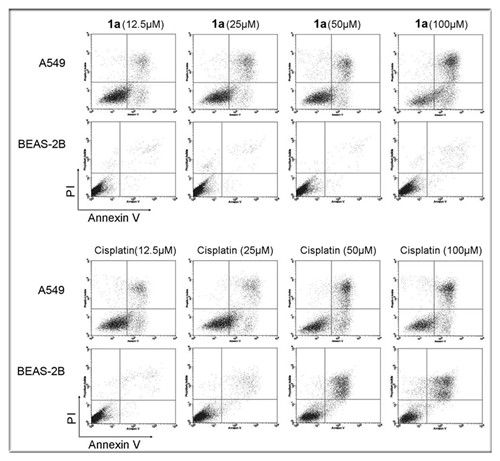Platinum-based drugs have become fundamental components of standard chemotherapy regiments, and are widely used in antitumor therapy of testicular and ovarian tumors, lung and colorectal carcinomas. Despite the therapeutic benefit, the efficacy of platinum-based treatment regiments is considerably compromised not only by severe side-effects but also by insurmountable cross-resistance.
With coorperation between Professor LIU Weiping’s group in Kunming institute of precious metals, and Professor LI Yan’s group, from Kunming institute of botany, a series of platinum (II) complexes were designed and synthesized featuring a dichloroactetate moiety tethered to the leaving group via ester bond. Among of which, mixed-NH3/cyclopentamine platinum(II) complexes of 3-dichoroacetoxylcyclobutane-1,1-dicarboxylate exhibit selective cytotoxicity towards cancer cells through inducing the apoptosis of cancer cells, whereas leaving the normal cells much less affected. Also, the complexes are able to overcome the resistance of SK-OV-3 cancer cells to cisplatin, showing a promising value for further exploration.
The paper has been published online by Scientific Reports recently (http://www.nature.com/srep/2013/130819/srep02464/full/srep02464.html). This work was supported by grants from Major State Basic Research Development Program of China, Natural Science Foundation of China, Chinese Academy of Sciences and Yunnan province

Expected synergistic mechanism of designed complexes

Complex 1a selectively induced cancer cell apoptosis




